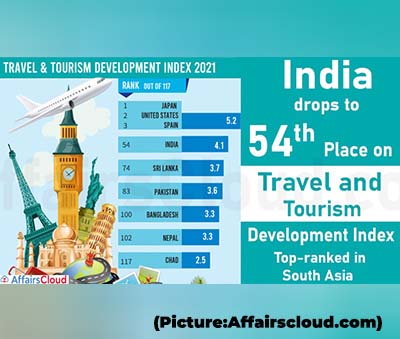The majestic Kanchenjunga, India’s highest peak, is celebrated as the Golden Mountain for its stunning sunrise illuminations that captivate both locals and travelers alike.
The majestic Kanchenjunga, standing at 8,586 meters, is not only India’s highest peak but also the third-highest mountain in the world. Nestled in the eastern reaches of the Himalayas, it straddles the border between India and Nepal. Revered by locals and travelers alike, Kanchenjunga is affectionately known as the Golden Mountain, a name that reflects its breathtaking light displays at dawn.
This title is not merely an aesthetic observation; it embodies a natural phenomenon that has shaped the cultural and spiritual landscape of the Himalayas for centuries. The designation of Kanchenjunga as the Golden Mountain arises from the interplay of light and the mountain’s unique geography. Unlike many other peaks that may appear stark white or gray under the midday sun, Kanchenjunga is positioned to catch the first and last rays of sunlight with remarkable clarity.
At dawn and dusk, the vast snowfields and glacial expanses of the mountain serve as a natural canvas. As the sun rises or sets, its light must pass through a thicker layer of the Earth’s atmosphere, filtering out blue and violet wavelengths and leaving behind warmer hues of reds, oranges, and yellows. When this light strikes the pristine snow of Kanchenjunga, the peak undergoes a stunning transformation, glowing in deep shades of amber, copper, and brilliant gold. For a few fleeting moments each day, the mountain appears as though it has been dipped in molten metal, a sight that inspires awe and wonder among those fortunate enough to witness it.
The name Kanchenjunga itself is steeped in linguistic and spiritual history. It is derived from Tibetan words: “Kang” meaning snow, “Chen” meaning big, “Dzö” meaning treasury, and “Nga” meaning five. Translated literally, it means The Five Treasures of the High Snow, referring to the mountain’s five distinct peaks, which local residents believe represent repositories of divine wealth: gold, silver, precious stones, grain, and sacred texts. This etymological connection to gold reinforces the mountain’s identity as a place of immense value and spiritual significance.
For the Sikkimese and Tibetan communities, Kanchenjunga is more than a geological feature; it is considered a powerful guardian deity and a physical manifestation of the protector of the land. This reverence is so profound that modern mountaineering expeditions traditionally stop a few feet short of the actual summit, respecting local religious beliefs that the “true top” should remain untrodden by human feet.
Geographically, Kanchenjunga serves as a massive sentinel over the Indian states of Sikkim and West Bengal. Its Indian face is most prominently visible from high-altitude vantage points such as Darjeeling and Tiger Hill, where tourists gather in the early hours of the morning to witness the mountain’s golden transformation. The surrounding region is protected by the Kanchenjunga National Park, a UNESCO World Heritage site recognized for its incredible biodiversity and sacred cultural significance. The park is home to a variety of rare and endangered species, including the snow leopard and the red panda, all existing under the shadow of the great Golden Mountain.
The glaciers flowing from Kanchenjunga’s slopes, such as the Zemu Glacier, are vital water sources for the rivers that sustain the valleys below, further cementing the mountain’s role as a provider of life and abundance. While other Himalayan giants, such as Nanda Devi in Uttarakhand or Dhaulagiri in Nepal, also display golden hues under specific atmospheric conditions, none are as closely associated with the title of Golden Mountain in the Indian consciousness as Kanchenjunga.
The visual drama of Kanchenjunga is most pronounced during the post-monsoon months of October and November when the air is at its clearest, stripped of the haze and moisture that can obscure the mountain during the summer. During this time, the contrast between the dark, waking valleys and the illuminated, golden summit creates a three-dimensional effect that has inspired countless paintings, photographs, and literary descriptions.
The enduring fascination with the Golden Mountain also reflects the broader relationship between the Indian people and the Himalayas. In many Indian philosophies, mountains are viewed as bridges between the earthly and the divine. The daily crowning of Kanchenjunga in gold is often interpreted as a spiritual metaphor for enlightenment or the presence of a higher power. For the local Lepcha and Bhutia communities, the mountain is the source of their origin myths and the final resting place of their ancestors’ spirits. This cultural weight ensures that Kanchenjunga is regarded with a level of sanctity that transcends its status as a mere destination for adventure sports or scientific study.
Even as modern technology allows for high-definition captures of the sunrise, the experience of witnessing the mountain turn to gold in person remains a rite of passage for many travelers in the region. In contemporary times, the Golden Mountain has also become a symbol of environmental conservation and the fragility of the Himalayan ecosystem. As global temperatures rise, the very snow and ice that allow Kanchenjunga to reflect its golden light are under threat.
Climate scientists closely monitor the mountain’s glaciers, noting that the retreat of ice could eventually alter the way the peak interacts with sunlight, potentially dulling the brilliance of its famous glow. Consequently, Kanchenjunga serves as a poignant reminder of the need to protect the natural heritage of the Indian subcontinent. It remains a focal point for sustainable tourism in Sikkim, where the state government has implemented strict regulations to ensure that the influx of visitors hoping to see the golden sunrise does not compromise the integrity of the sacred landscape.
Ultimately, Kanchenjunga’s identity as the Golden Mountain is a blend of optical reality and human imagination. It is a phenomenon that bridges the gap between the physical world of rock and ice and the metaphysical realm of myth and belief. Whether viewed as a scientific marvel of light refraction or a divine treasure chest of the gods, the mountain continues to captivate the Indian imagination. As the first light of day touches the highest point in India, the golden glow serves as a daily renewal of the mountain’s majesty, standing as a silent, shimmering guardian over the eastern Himalayas. For those who stand in the cold morning air of the foothills, watching the gray silhouette of the horizon burst into a fiery, metallic brilliance, there is no question why Kanchenjunga has earned its place as the definitive Golden Mountain of the East, according to GlobalNetNews.














 Weehawken, NJ was once host to prominent ancestors, infamous neighbors, and the forefathers’ famous duel of 1804. Now, EnVue hotel rises from the revitalized Hudson River waterfront offering a clean slate for new generations to create their own history. You can gather with friends and family for intimate dinners or large, timeless events at Skyline, their 25,000 sq ft adaptable outdoor terrace encircled by NYC’s horizon. You can also host a meeting for about 800 attendees inside the WorldVue Ballroom, their most expansive venue. And showcase your vision with their state-of-art audiovisual equipment, available in every meeting room. At night sleep well in their well-appointed suites and guest rooms with a host of amenities.
Weehawken, NJ was once host to prominent ancestors, infamous neighbors, and the forefathers’ famous duel of 1804. Now, EnVue hotel rises from the revitalized Hudson River waterfront offering a clean slate for new generations to create their own history. You can gather with friends and family for intimate dinners or large, timeless events at Skyline, their 25,000 sq ft adaptable outdoor terrace encircled by NYC’s horizon. You can also host a meeting for about 800 attendees inside the WorldVue Ballroom, their most expansive venue. And showcase your vision with their state-of-art audiovisual equipment, available in every meeting room. At night sleep well in their well-appointed suites and guest rooms with a host of amenities.
 The apex court clarified that the question in connection with the ownership of airport land will remain open. The Kerala government had challenged the Airports Authority of India (AAI) decision to prefer Adani over it for management of the airport. The appeal argued that this decision was not in public interest and granting concession to Adani, who has no previous experience in managing airports, was violative of the provisions of the Airports Authority of India Act.
The apex court clarified that the question in connection with the ownership of airport land will remain open. The Kerala government had challenged the Airports Authority of India (AAI) decision to prefer Adani over it for management of the airport. The appeal argued that this decision was not in public interest and granting concession to Adani, who has no previous experience in managing airports, was violative of the provisions of the Airports Authority of India Act. The report also said the top five states for domestic tourist visits in 2021 were Tamil Nadu (115.33 million), Uttar Pradesh (109.70 million), Andhra Pradesh (93.27 million), Karnataka (81.33 million) and Maharashtra (43.56 million)
The report also said the top five states for domestic tourist visits in 2021 were Tamil Nadu (115.33 million), Uttar Pradesh (109.70 million), Andhra Pradesh (93.27 million), Karnataka (81.33 million) and Maharashtra (43.56 million) A fracture is not an easy wound to heal. It takes many weeks for a bone to mend. In a modern city like Blantyre there are households in which a person would bide their time by sitting around, watching Netflix, talking on the phone with friends. However in the villages of Mvera life is on the hills. People farm maize or cassava, tend to their goats, or gossip by the grass fences around their huts. Father knows that his own mother is an active woman. She goes out into the fields and keeps herself busy there all day, and when she is not doing that, she likes to sit around the well and chat with her friends.
A fracture is not an easy wound to heal. It takes many weeks for a bone to mend. In a modern city like Blantyre there are households in which a person would bide their time by sitting around, watching Netflix, talking on the phone with friends. However in the villages of Mvera life is on the hills. People farm maize or cassava, tend to their goats, or gossip by the grass fences around their huts. Father knows that his own mother is an active woman. She goes out into the fields and keeps herself busy there all day, and when she is not doing that, she likes to sit around the well and chat with her friends. 
 Kerala is ranked ninth in the “World’s Greatest Places 2022” list as an eco-tourism spot. The US magazine wrote that Kerala has spectacular beaches and lush backwaters, temples, and palaces and is known as ‘God’s Own Country’ with good reason.
Kerala is ranked ninth in the “World’s Greatest Places 2022” list as an eco-tourism spot. The US magazine wrote that Kerala has spectacular beaches and lush backwaters, temples, and palaces and is known as ‘God’s Own Country’ with good reason. Titled ‘Travel & Tourism Development Index 2021: Rebuilding for a Sustainable and Resilient Future’, the study measured “the set of factors and policies that enable the sustainable and resilient development of the T&T sector, which in turn contributes to the development of a country”.
Titled ‘Travel & Tourism Development Index 2021: Rebuilding for a Sustainable and Resilient Future’, the study measured “the set of factors and policies that enable the sustainable and resilient development of the T&T sector, which in turn contributes to the development of a country”. “If you’ve ever wondered to what extent AAHOA serves its membership, I am a perfect example,” Patel said. “My parents didn’t have the opportunity to have AAHOA as a resource, but thankfully, when I took over the family business, AAHOA was there for me as I navigated the hospitality industry. AAHOA provided me with the educational tools I needed to run a hotel successfully.”
“If you’ve ever wondered to what extent AAHOA serves its membership, I am a perfect example,” Patel said. “My parents didn’t have the opportunity to have AAHOA as a resource, but thankfully, when I took over the family business, AAHOA was there for me as I navigated the hospitality industry. AAHOA provided me with the educational tools I needed to run a hotel successfully.” “In order to fulfill this mission, AAHOA created the 12 Points of Fair Franchising Ad Hoc Committee, which was tasked with recommending revisions to the 12 Points of Fair Franchising,” Patel said. “And I’m pleased to announce today that, with the help, support, and input of the 12 Points of Fair Franchising Ad Hoc Committee and the AAHOA Board of Directors, we’re releasing the updated 12 Points of Fair Franchising.”
“In order to fulfill this mission, AAHOA created the 12 Points of Fair Franchising Ad Hoc Committee, which was tasked with recommending revisions to the 12 Points of Fair Franchising,” Patel said. “And I’m pleased to announce today that, with the help, support, and input of the 12 Points of Fair Franchising Ad Hoc Committee and the AAHOA Board of Directors, we’re releasing the updated 12 Points of Fair Franchising.” In fact, the southbound leg of the historic new route will become the fourth-longest flight in the world, with a flight time clocking in at 17 hours and 35 minutes. The route will also be the first-ever nonstop from the
In fact, the southbound leg of the historic new route will become the fourth-longest flight in the world, with a flight time clocking in at 17 hours and 35 minutes. The route will also be the first-ever nonstop from the  I am pleased to announce that Justin Knight, CEO of Apple Hospitality REIT, and Jay H. Shah, CEO of Hersha Hospitality Trust, are the guest speakers for the Young Professional Hoteliers Session on Wednesday, April 13 at
I am pleased to announce that Justin Knight, CEO of Apple Hospitality REIT, and Jay H. Shah, CEO of Hersha Hospitality Trust, are the guest speakers for the Young Professional Hoteliers Session on Wednesday, April 13 at  “The hospitality industry has always been one to step up in times of need,” Patel said. “The HospitalityHelps initiative is a true testament to what can be accomplished when we work together to help those who are suffering.” HospitalityHelps is currently connecting families on the run from the war in Ukraine with hotel owners across the world providing free hotel stays. “At the end of the day, people just need to feel safe. They need a roof over their heads and a place to call home while their country is experiencing extreme unrest,” Patel said. “This is the very foundation of the hotel industry and what hotel owners strive to do each and every day: provide solace and peace for those who need rest and a safe place to stay.”
“The hospitality industry has always been one to step up in times of need,” Patel said. “The HospitalityHelps initiative is a true testament to what can be accomplished when we work together to help those who are suffering.” HospitalityHelps is currently connecting families on the run from the war in Ukraine with hotel owners across the world providing free hotel stays. “At the end of the day, people just need to feel safe. They need a roof over their heads and a place to call home while their country is experiencing extreme unrest,” Patel said. “This is the very foundation of the hotel industry and what hotel owners strive to do each and every day: provide solace and peace for those who need rest and a safe place to stay.” “I have faced more challenges than I care to recount here, and I don’t cite my accomplishments to brag. Instead, they demonstrate the difficulties that many of us have faced on our ascent into leadership.”
“I have faced more challenges than I care to recount here, and I don’t cite my accomplishments to brag. Instead, they demonstrate the difficulties that many of us have faced on our ascent into leadership.” “Today is the beginning of a new chapter. The entire nation’s eyes are on us, waiting to see what we will achieve together. To build the airline our country needs, we need to look to the future,” it added. Notably, the purpose of the letter was to welcome the employees into the Tata Group “family”.
“Today is the beginning of a new chapter. The entire nation’s eyes are on us, waiting to see what we will achieve together. To build the airline our country needs, we need to look to the future,” it added. Notably, the purpose of the letter was to welcome the employees into the Tata Group “family”. For example, in Florida, “you have to own a car. If you are coming from an area where auto usage is uncommon, you are going to have quite a shock. Mass transit is almost unknown,” he says.
For example, in Florida, “you have to own a car. If you are coming from an area where auto usage is uncommon, you are going to have quite a shock. Mass transit is almost unknown,” he says.



 As hundreds of woolly black camels trotted through the dusty pastures, necks and humps bobbing, one of the organizers, Mohammed al-Muhari, outlined the platonic ideal.
As hundreds of woolly black camels trotted through the dusty pastures, necks and humps bobbing, one of the organizers, Mohammed al-Muhari, outlined the platonic ideal. Planned in collaboration between project’s designer, OCEANIX and the UN Human Settlement Programme (UN-Habitat), the
Planned in collaboration between project’s designer, OCEANIX and the UN Human Settlement Programme (UN-Habitat), the  India’s passenger* traffic stood at 115.37 million in FY21. Domestic passenger and international passenger traffic declined at a CAGR of -9.02% and -28.64%, respectively, from FY16 to FY21, owing to COVID-19-related restrictions on flights in FY21. In FY21, airports in India pegged the domestic passenger traffic to be ~105.2 million, a 61.7% YoY decline, and international passenger traffic to be ~10.1 million, an 84.8% YoY decline, over the fiscal year ended March 31, 2020. In March 2021, the average daily passenger traffic stood at 546,702.90.
India’s passenger* traffic stood at 115.37 million in FY21. Domestic passenger and international passenger traffic declined at a CAGR of -9.02% and -28.64%, respectively, from FY16 to FY21, owing to COVID-19-related restrictions on flights in FY21. In FY21, airports in India pegged the domestic passenger traffic to be ~105.2 million, a 61.7% YoY decline, and international passenger traffic to be ~10.1 million, an 84.8% YoY decline, over the fiscal year ended March 31, 2020. In March 2021, the average daily passenger traffic stood at 546,702.90. Also, American Airlines’ Bengaluru-Seattle that was supposed to start from January 4, 2022, stands deferred to March-end as corporate travel is yet to pick up and expected to revive till then. The Airline suspended its India flights in 2012 when it terminated its Chicago-New Delhi flight which it started in 2007.
Also, American Airlines’ Bengaluru-Seattle that was supposed to start from January 4, 2022, stands deferred to March-end as corporate travel is yet to pick up and expected to revive till then. The Airline suspended its India flights in 2012 when it terminated its Chicago-New Delhi flight which it started in 2007. The guidelines released last week had said that travelers coming from a country with which India has reciprocal arrangements for mutual acceptance of WHO-approved Covid-19 vaccines would not have to self-isolate but would have to produce a negative RT-PCR test.
The guidelines released last week had said that travelers coming from a country with which India has reciprocal arrangements for mutual acceptance of WHO-approved Covid-19 vaccines would not have to self-isolate but would have to produce a negative RT-PCR test. To put that into perspective, the London Eye — one of the largest observation wheels in the world and one of the most well-known — is only around 440 feet tall. The
To put that into perspective, the London Eye — one of the largest observation wheels in the world and one of the most well-known — is only around 440 feet tall. The  It’s a celebration that was reportedly a long time coming. Officials in Dubai first gave developers the greenlight to build the record-breaking ride in 2013, as part of a larger project to increase tourism in the area,
It’s a celebration that was reportedly a long time coming. Officials in Dubai first gave developers the greenlight to build the record-breaking ride in 2013, as part of a larger project to increase tourism in the area,  AAHOA is working with the administration to promote vaccine awareness in the hospitality industry and called for new measures to restart international travel safely earlier this year. “This is a big win for our Members, families, business, and tourism industries, especially those living in Texas and in the states bordering Canada,” said AAHOA President & CEO Ken Greene. “Cross-border operations were halted at the start of the pandemic, and AAHOA pressed the administration on the financial toll the travel ban took on small businesses.”
AAHOA is working with the administration to promote vaccine awareness in the hospitality industry and called for new measures to restart international travel safely earlier this year. “This is a big win for our Members, families, business, and tourism industries, especially those living in Texas and in the states bordering Canada,” said AAHOA President & CEO Ken Greene. “Cross-border operations were halted at the start of the pandemic, and AAHOA pressed the administration on the financial toll the travel ban took on small businesses.” That means travelers looking to enter the country, whether it’s to reunite with family and friends or as a tourist, will be able to do so again for the first time since the start of the pandemic in March 2020. The policy will start November 8, “in alignment with the new international air travel system,” Secretary of Homeland Security Alejandro Mayorkas said in
That means travelers looking to enter the country, whether it’s to reunite with family and friends or as a tourist, will be able to do so again for the first time since the start of the pandemic in March 2020. The policy will start November 8, “in alignment with the new international air travel system,” Secretary of Homeland Security Alejandro Mayorkas said in  The initial report, unveiled at the 2021 AAHOA Convention & Trade Show in Dallas, Texas, revealed that the association’s nearly 20,000 hoteliers own 34,260 hotel properties, which account for 60 percent of the hotels in the United States. These properties have 3.1 million guestrooms and account for 2.2 million direct-impact jobs. The state-level reports highlight key data points such as the annual economic impact that AAHOA Member-owned properties have in each state, labor and job impacts, guest spending, member purchases from other businesses, annual capital investments, and much more.
The initial report, unveiled at the 2021 AAHOA Convention & Trade Show in Dallas, Texas, revealed that the association’s nearly 20,000 hoteliers own 34,260 hotel properties, which account for 60 percent of the hotels in the United States. These properties have 3.1 million guestrooms and account for 2.2 million direct-impact jobs. The state-level reports highlight key data points such as the annual economic impact that AAHOA Member-owned properties have in each state, labor and job impacts, guest spending, member purchases from other businesses, annual capital investments, and much more. Tata Group and SpiceJet chairman
Tata Group and SpiceJet chairman  In India, the climb recommenced in June after a huge drop in April-May during the second Covid wave, which made India’s domestic air travel demand take the deepest plunge worldwide. Domestic air travel demand (measured in revenue passenger kilometres: number of kilometres flown by all passengers) was the lowest in May. It fell 71% as compared to the pre-Covid month of May 2019, showed IATA data. Only Japan with a 68.5% drop in demand as compared to May 2019 came close. But India caught up in August: its domestic travel demand rose to almost half of that in pre-Covid August 2019. It had been down 60% in July.
In India, the climb recommenced in June after a huge drop in April-May during the second Covid wave, which made India’s domestic air travel demand take the deepest plunge worldwide. Domestic air travel demand (measured in revenue passenger kilometres: number of kilometres flown by all passengers) was the lowest in May. It fell 71% as compared to the pre-Covid month of May 2019, showed IATA data. Only Japan with a 68.5% drop in demand as compared to May 2019 came close. But India caught up in August: its domestic travel demand rose to almost half of that in pre-Covid August 2019. It had been down 60% in July. “In a highly unpredictable year, these signings are a testament to Marriott International’s resilience and agility in driving strong growth within a hospitality landscape that continues to evolve,” commented Rajeev Menon — President Asia Pacific (excluding Greater China), Marriott International. “It is a sign of confidence from our owners and franchisees who have been an integral part of our growth journey. We are grateful for their continued support and trust in the power of our brands as we continue to welcome back travellers.”
“In a highly unpredictable year, these signings are a testament to Marriott International’s resilience and agility in driving strong growth within a hospitality landscape that continues to evolve,” commented Rajeev Menon — President Asia Pacific (excluding Greater China), Marriott International. “It is a sign of confidence from our owners and franchisees who have been an integral part of our growth journey. We are grateful for their continued support and trust in the power of our brands as we continue to welcome back travellers.” During his interim period, Greene oversaw the association’s return to in-person events with the 2021 AAHOA Convention & Trade Show in Dallas, Texas. The convention, which drew more than 6,000 attendees, was the first such event in the city since the start of the pandemic.
During his interim period, Greene oversaw the association’s return to in-person events with the 2021 AAHOA Convention & Trade Show in Dallas, Texas. The convention, which drew more than 6,000 attendees, was the first such event in the city since the start of the pandemic. The objective of the event is to promote Ladakh as a tourist destination with focus on aspects of adventure, culture and responsible tourism. The event aims to provide indigenous product knowledge to the industry stakeholders and also a platform to local stakeholders for interaction with the tour operators from the rest of the country. The three-day event will include activities like exhibition, panel discussions, B2B meetings, technical tours and cultural evenings to showcase the tourism facilities and products of Ladakh.
The objective of the event is to promote Ladakh as a tourist destination with focus on aspects of adventure, culture and responsible tourism. The event aims to provide indigenous product knowledge to the industry stakeholders and also a platform to local stakeholders for interaction with the tour operators from the rest of the country. The three-day event will include activities like exhibition, panel discussions, B2B meetings, technical tours and cultural evenings to showcase the tourism facilities and products of Ladakh. Ladakh is well-known as a pristine and unique hub for culture and ecotourism. SEWA hosts in Ladakh will offer a unique and immersive experience in the ancient village of Phayang in Leh Ladakh. These hosts will also be leading the way on energy efficiency and responsible resource use through accommodations with amenities such as newly installed solar lights. Women make up a significant portion of Airbnb’s Host community in India. As of August 11 this year, new women Hosts in India with one listing have earned almost Rs 30 million since the start of the pandemic and women make up almost 30 per cent of our entire Indian Host community. Through home sharing, women hosts are able to significantly augment their earnings and some women entrepreneurs have embraced being home hosts full-time.
Ladakh is well-known as a pristine and unique hub for culture and ecotourism. SEWA hosts in Ladakh will offer a unique and immersive experience in the ancient village of Phayang in Leh Ladakh. These hosts will also be leading the way on energy efficiency and responsible resource use through accommodations with amenities such as newly installed solar lights. Women make up a significant portion of Airbnb’s Host community in India. As of August 11 this year, new women Hosts in India with one listing have earned almost Rs 30 million since the start of the pandemic and women make up almost 30 per cent of our entire Indian Host community. Through home sharing, women hosts are able to significantly augment their earnings and some women entrepreneurs have embraced being home hosts full-time. Coming together as an industry is paramount to economic recovery, especially as new variants threaten to inhibit the reopening of America. I am confident that AAHOA’s enhanced advocacy and education efforts as well as the implementation of our new strategic plan will help our industry get back on track.” Patel plans to focus on elevating the association’s advocacy and engagement at the state and local level including coordinating political education efforts with the American Hospitality Alliance.
Coming together as an industry is paramount to economic recovery, especially as new variants threaten to inhibit the reopening of America. I am confident that AAHOA’s enhanced advocacy and education efforts as well as the implementation of our new strategic plan will help our industry get back on track.” Patel plans to focus on elevating the association’s advocacy and engagement at the state and local level including coordinating political education efforts with the American Hospitality Alliance. In all Indian Americans own and operate 3.1 million guestrooms, and 2.2 million direct impact jobs. The study’s topline results were presented to AAHOA Members during the general session on the first day of the 2021 AAHOA Convention & Trade Show at the Kay Bailey Hutchison Convention Center Dallas on August 3rd.
In all Indian Americans own and operate 3.1 million guestrooms, and 2.2 million direct impact jobs. The study’s topline results were presented to AAHOA Members during the general session on the first day of the 2021 AAHOA Convention & Trade Show at the Kay Bailey Hutchison Convention Center Dallas on August 3rd. With the ownership of the majority hotel industry, the economic impact and industry influence of AAHOA’s nearly 20,000 Members, is very impressive. “This study gives us the clearest picture to date about the scale, reach, and economic impact that AAHOA Members have in the United States,” said AAHOA Chairman Biran Patel. “It is remarkable how far AAHOA Members have come since the association’s founding in 1989 when a small group of hoteliers banded together to fight discrimination. That commitment to helping hoteliers grow their businesses and realize the American Dream is reflected in the impressive numbers revealed today. We are proud of what our Members have accomplished and remain committed to being the foremost resource and advocate for America’s hotel owners.”
With the ownership of the majority hotel industry, the economic impact and industry influence of AAHOA’s nearly 20,000 Members, is very impressive. “This study gives us the clearest picture to date about the scale, reach, and economic impact that AAHOA Members have in the United States,” said AAHOA Chairman Biran Patel. “It is remarkable how far AAHOA Members have come since the association’s founding in 1989 when a small group of hoteliers banded together to fight discrimination. That commitment to helping hoteliers grow their businesses and realize the American Dream is reflected in the impressive numbers revealed today. We are proud of what our Members have accomplished and remain committed to being the foremost resource and advocate for America’s hotel owners.” The bill was unveiled just six days ago. Lawmakers worked through the night and the weekend to reach a compromise version approved by the Senate on Sunday night and by the National Assembly after midnight. The rules can be applied through Nov. 15, depending on the virus situation. Macron appealed for national unity and mass vaccination to fight the resurgent virus, and lashed out at those fueling anti-vaccine sentiment and protests.
The bill was unveiled just six days ago. Lawmakers worked through the night and the weekend to reach a compromise version approved by the Senate on Sunday night and by the National Assembly after midnight. The rules can be applied through Nov. 15, depending on the virus situation. Macron appealed for national unity and mass vaccination to fight the resurgent virus, and lashed out at those fueling anti-vaccine sentiment and protests.